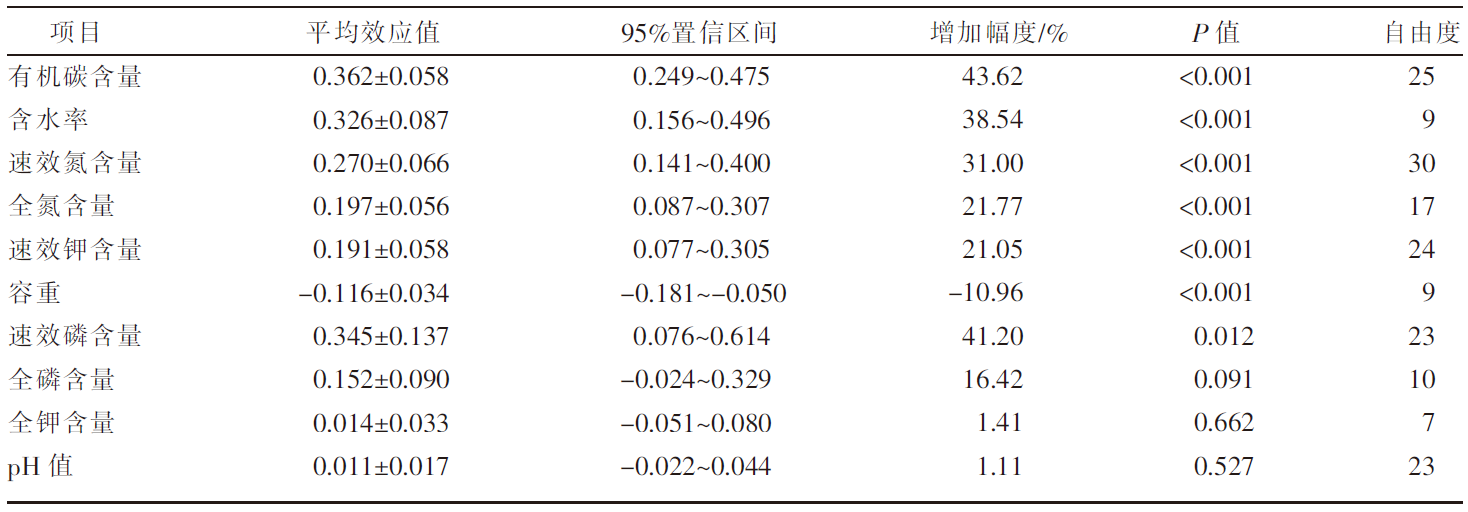| [1] |
王瑞港, 徐伟平. 我国苜蓿产业发展特征与趋势分析[J]. 中国农业科技导报, 2021, 23(12):7-12.
|
| [2] |
陶雅, 孙启忠, 徐丽君, 等. 我国苜蓿产业发展态势与面临的挑战[J]. 草原与草业, 2022, 34(1):1-10.
|
| [3] |
曹宏, 李茜, 杨宏伟, 等. 陇东地区6个紫花苜蓿品种生产性能比较试验[J]. 中国草地学报, 2022, 44(9): 47-55.
|
| [4] |
张杰, 贾志宽, 韩清芳. 不同养分对苜蓿茎叶比和鲜干比的影响[J]. 西北农业学报, 2007, 16(4):121-125.
|
| [5] |
常介田, 闫凌云, 姬天巧, 等. 豫西丘陵干旱区果园生草土壤培肥效应分析[J]. 北方园艺, 2012(11):159-161.
|
| [6] |
畅喜云, 彭启芳, 杨国柱. 青海省环湖地区不同种植年限紫花苜蓿土壤质量初探[J]. 黑龙江畜牧兽医, 2012(11):102-104.
|
| [7] |
陈卫东, 张玉霞, 丛百明, 等. 钾肥对紫花苜蓿抗寒性及糖类物质变化的影响[J]. 西北农林科技大学学报(自然科学版), 2022, 50(3):67-74.
|
| [8] |
许庆民, 王云英, 辛莹, 等. Meta分析放牧对中国北方草地生态系统蒸散量的影响[J]. 草业科学, 2020, 37(10):1952-1958.
|
| [9] |
PICASSO V D, CASLER M D, UNDERSANDER D. Resilience,stability,and productivity of alfalfa cultivars in rainfed regions of North America[J]. Crop Science, 2019, 59(2):800-810.
doi: 10.2135/cropsci2018.06.0372
|
| [10] |
张会芳. 植被恢复模式对成庄矿排矸场土壤理化性质的影响[D]. 晋中: 山西农业大学, 2018.
|
| [11] |
姜黎, 郑银, 刘国军, 等. 果园间作模式下杏树与苜蓿的根系分布特征及其土壤理化性质研究[J]. 西北植物学报, 2017, 37(12):2489-2495.
|
| [12] |
刘雪强, 南丽丽, 郭全恩, 等. 黄土高原半干旱区种植不同绿肥作物对土壤理化性质的影响[J]. 甘肃农业大学学报, 2020, 55(1):145-152.
|
| [13] |
孙洪仁, 张英俊, 韩建国, 等. 北京平原区紫花苜蓿建植当年的需水规律[J]. 中国草地学报, 2006, 28(4):35-38.
|
| [14] |
陈凤林, 刘文清. 几种栽培牧草需水规律的初步研究[J]. 中国草原, 1982(3):38-43.
|
| [15] |
熊诗源, 许文年, 夏栋, 等. 不同植被恢复模式对植被混凝土基材微生物特征的影响研究[J]. 水土保持研究, 2010, 17(4):279-284.
|
| [16] |
武江燕, 任亮, 任稳江, 等. 适宜会宁县山旱区休耕地地力培育的绿肥作物筛选[J]. 甘肃农业科技, 2021, 52(3):60-63.
|
| [17] |
贾倩民, 陈彦云, 杨阳, 等. 不同人工草地对干旱区弃耕地土壤理化性质及微生物数量的影响[J]. 水土保持学报, 2014, 28(1):178-182.
|
| [18] |
高露, 岳坤, 唐文林, 等. 枣园生草对土壤养分及果实品质的影响[J]. 新疆农业科学, 2020, 57(1):86-96.
doi: 10.6048/j.issn.1001-4330.2020.01.010
|
| [19] |
毛骁, 孙保平, 张建锋, 等. 微生物菌肥对干旱矿区土壤的改良效果[J]. 水土保持学报, 2019, 33(2):201-206.
|





